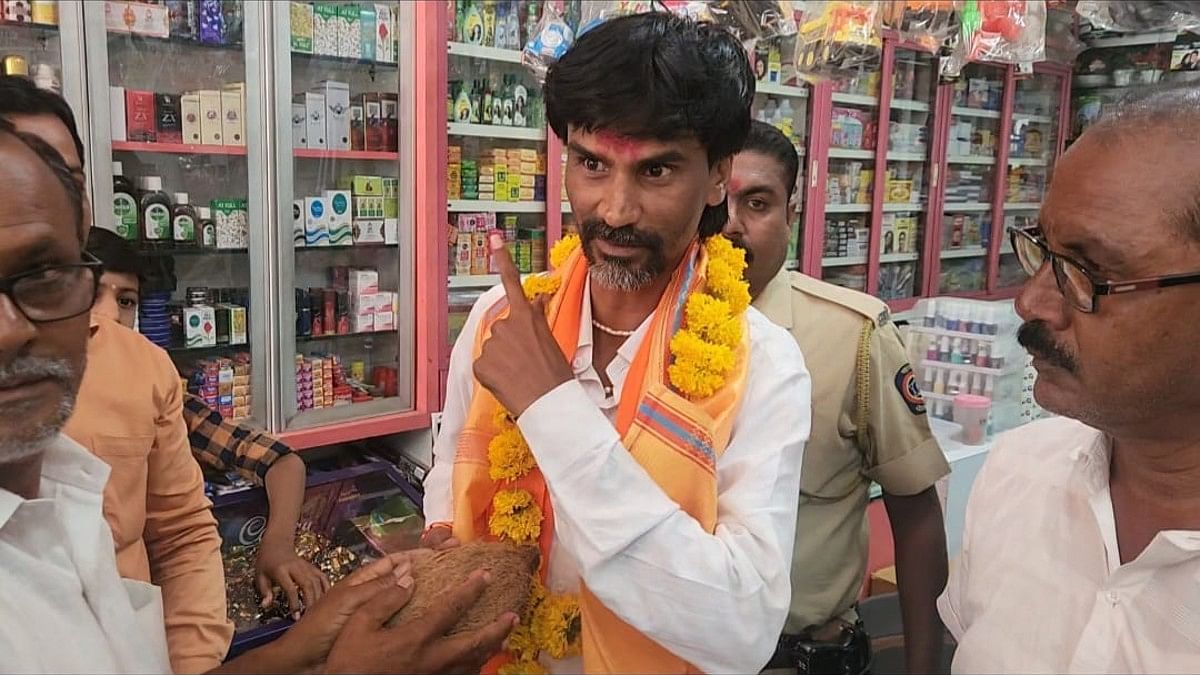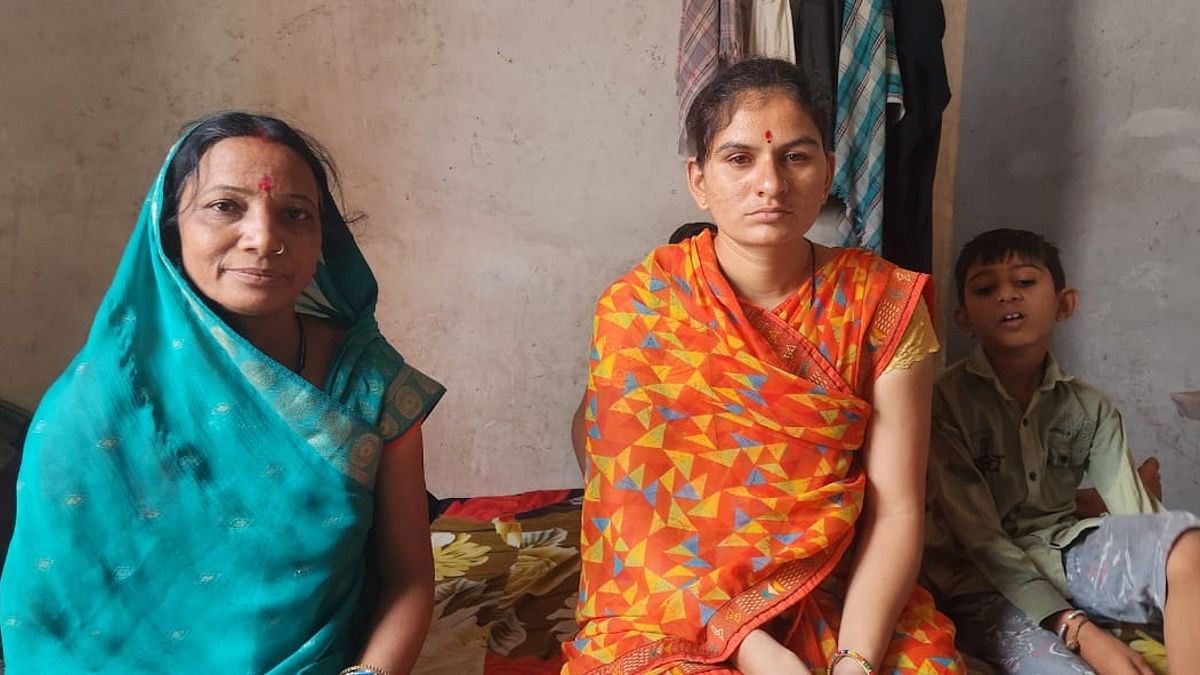“It was an unfortunate incident that took place. Because of the Maratha protests by Manoj Jarange Patil, now there is polarisation amongst OBCs and Marathas in our villages,” social worker and leader of Rashtriya OBC Mahasangh Balasaheb Dakhne told ThePrint.
Dakhne’s native village, Antarwali Sarati in Jalna district, is where the demand for reservation for Marathas in the OBC quota picked up steam, with Jarange Patil as its face. The demand unsettled OBCs who, led by state minister Chhagan Bhujbal, held protests across the state to voice their opposition to the inclusion of Marathas in the OBC quota.
“Marathas earlier were fragmented but now they are united and would vote on one side. I will not tell them which side to vote for, but their votes are now consolidated,” Jarange Patil told ThePrint.

Marathwada has eight Lok Sabha seats. Of these, the MVA has announced candidates on all eight — these include six from the Maratha community. The ruling Mahayuti alliance too has declared candidates for seven of these seats. Among them, four are Marathas.
Most of these seats are set to witness a Maratha versus Maratha contest, with the exception of Beed, where BJP’s Pankaja Munde, an OBC, is contesting against MVA’s Bajrang Sonwane, a Maratha.
Residents of villages in and around Jalna told ThePrint that if they were to choose between two Maratha candidates, the community would pick the one most likely to help them get reservation in the OBC quota. To add to that, the OBC Bahujan party — a political forum formed in November last year of OBC leaders from across Marathwada — is fielding candidates in seats where both candidates from the alliances are Marathas.
Marathwada-based political analyst Jaidev Dole, however, was of the opinion that the Lok Sabha polls would not be marked by absolute consolidation along caste lines. “There is ideological conflict, yes. But I believe value-based politics will take place. Emotional factors like break-up of parties, sympathy for Sharad Pawar and Uddhav Thackeray will also play a major role. So I don’t think all of them will get consolidated on one side.”
“It will be opportunism versus loyalty,” he added.
Candidates from the Maratha community had dominated the fray in the previous general election, with half of the 48 elected MPs in Maharashtra being Marathas. According to the Maharashtra State Backward Class Commission (MSBCC) report submitted to the chief secretary in February this year, Marathas account for about 28 percent and OBCs more than half of the state’s total population of 11.5 crore.
Also Read: What’s the Shinde govt’s ‘sage soyare’ clause that ended Jarange Patil’s Maratha quota agitation
‘Will give Opposition a chance’
In Jalna’s Antarwali Sarati village, memories are still fresh of the lathicharge last September on protesters demanding a Maratha quota. Recalling her ordeal, Lalita Tarakh who suffered injuries to her leg during the lathicharge, told ThePrint that her children — two sons, aged 10 and 15 — still fear the sight of men in uniform. They had fallen ill because of the tear gas and had to miss school for eight days, she said.
Tarakh added, “The government has not fulfilled its promise. If they want us to vote for them, they will have to give us quota. They want us only for the election. After the election, they will discard us. So we will also show them now. This time, in the village we will give the Opposition a chance.”
Meerabai Tarakh, sarpanch of Antarwali Sarati, added that this time villagers “will vote for someone who will support our demand (for Maratha quota)”.
“I don’t care if that person is from BJP or Aghadi. I don’t know how to trust the candidate but I will have to vote irrespective of it since that is our right,” she said.

About 50 km from Antarwali Sarati, in Jalna’s Ghansawangi village, Nitin Kadam said he felt reservation in the OBC quota could help him secure a job, which has become increasingly difficult over the past few years. “Jarange is fighting for us, for our future. And that is he is demanding reservation under OBC quota, we fully support him and the government has once again fooled us. So this time, we will not vote for the government’s candidate.”
Baliram Khatke, an OBC from Ambad, added, “This is a fight for our existence, be it Marathas or OBCs. We are also fighting for our rights.”
Changing social dynamics
Marathas have traditionally enjoyed a dominant position in Maharashtra’s politics and co-operative sector. But, according to Dole, “after the Mandal Commission decision on OBC quota, the struggle between Marathas and OBCs started as OBCs too started getting political representation”.
This, he added, led to tensions which coupled with the agrariajn crisis provided fertile ground for the Maratha quota stir which seems to have had a lasting impact on the interpersonal relationships between members of both communities.
Ramesh Salgar, a farmer from Ambad said, “Earlier, we used to greet each other when our paths crossed. We did not care about anybody’s caste. Whenever there was a wedding in the village, a Maratha and an OBC would share a motorbike, eat from each other’s plates.”
“But all that is changing now,” added Salgar, an OBC.
Dakhne, who says 80 percent of the residents of his village are OBCs and the remaining 20 percent are Marathas, agreed. The lane outside his house was packed last Dussehra with people going to each other’s houses, he said. “But during Gudi Padwa now, there was no movement of going and coming into each other’s houses. It breaks my heart.”
Bhaurao Patil from Malkapur village, added that before the Maratha quota stir, OBCs and Marathas sipped tea together in his village and invited each other to household gatherings. “But since the agitation, we don’t mingle with each other much. This will be reflected in the election as well.”
Dole said that before the BJP-Shiv Sena alliance in the 1980s, OBCs and Marathas who were not a part of the ruling class were Shiv Sena voters. After the alliance, this vote shifted to the BJP, he added. “Both of them supported each other to fight the aristocratic Marathas or ruler Marathas. But now, after the split, things have changed.”
Beed, Parbhani & Jalna
Bajrang Sonwane, who has been pitted against Pankaja Munde in Beed, says caste should not determine one’s voting choices. “I am a Maratha but that doesn’t mean OBCs are not with me. I don’t think there is polarisation. I don’t know who is taking this election on caste lines. It should not be the case.”
Beed is a drought-prone region and struggles on the developmental front. It also witnessed violence during the Maratha quota stir last year with protesters torching the residence of local MLA Sandeep Kshirsagar of the Nationalist Congress Party (Sharadchandra Pawar) and a hotel owned by an aide of NCP leader and state minister Chhagan Bhujbal.
“In our constituency, most MPs have been from the OBC community despite heavy Maratha presence. I don’t know whose selfish motives are these to divide society. I think development should be key. Previous MPs had no vision for Beed,” said Sonwane.
In Parbhani district, where he is facing Mahayuti candidate Mahadev Jankar, Sanjay Jadhav of Shiv Sena (UBT) told party workers Thursday that the BJP is trying to polarise the election along caste lines. He appealed to the cadre and to voters to look beyond caste.
“Elections take place with efforts of all castes, communities. Nobody wins with support of only one community. If I want to win, I will have to ask for everyone’s votes. Just because I belong to a particular community, I can’t win based on their votes alone,” he said.
Taunting Jankar, Jadhav said he would always be available for the people of Parbhani, unlike his opponent who is originally from Satara district. “I will always be there. For our opponent, since he has no say in Parbhani, he is asking for votes by dividing us on caste lines. But he is not alone, BJP is the mastermind behind this polarisation,” Jadhav added.
ThePrint reached Mahadev Jankar for comment via calls but had not received a response by the time of publication. This report will be updated if and when a response is received.
Another interesting contest is brewing in Jalna, where voters have to choose between two Maratha candidates — Raosaheb Danve of Mahayuti and Dr Kalyan Kale of MVA. Here, the OBC Bahujan Party has fielded Dr Tanaji Bhojane, who organised a public meeting which was addressed by Bhujbal last November to protest inclusion of Marathas in OBC quota.
According to Bhojane, tensions between Marathas and OBCs have been simmering under the surface in Jalna for the past six months.
“In our constituency, around eight lakh are OBCs and definitely this time around, it will move away from the BJP for which OBCs have traditionally been voting. Our community feels that the government’s approach in the Maratha quota issue was wrong. It entertained the unrealistic demands of Jarange, thus making it bigger,” Bhojane told ThePrint.
ThePrint reached Raosaheb Danve and Dr Kalyan Kale for comment via phone calls and messages but had not received a response by the time of publication. This report will be updated if and when a response is received.
(Edited by Amrtansh Arora)
Also Read: 3rd time in 10 years, Maharashtra govt recommends separate 10% quota for Marathas




